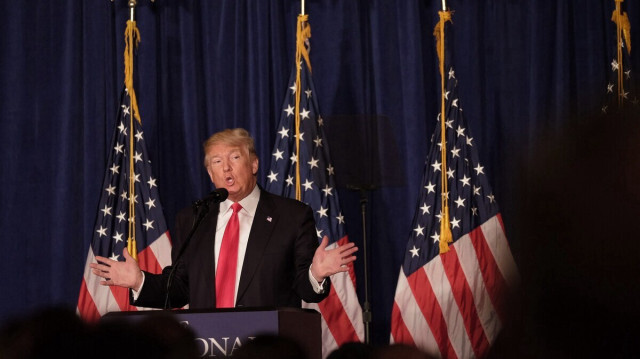
An isolationist unilateralism with a grasp of the punitive use of force is the hallmark of Trumpian foreign policy
Last month's assassination attempt on former US President Donald Trump has sparked many controversies in American politics. Trump had already been doing well in many polls and appeared to be in a favorable position in the presidential race. The assassination attempt and the recent presidential TV debate seem to have boosted his popularity, even among some independent voters. Many signs point to an incoming Trump presidency, though President Joe Biden ending his candidacy in favor of Vice President Kamala Harris has shaken up the race. With much being said about how recent events have affected Trump's election prospects, another important question arises for the rest of the world: How would a second Trump presidency shape US foreign policy?
- Trump, the state, and war
To begin with, Trump has an extremely transactional approach to foreign policy. He sees foreign policy decisions as the same as those in business. He even advertises this trait by claiming that he is good at making “profitable” deals. The only difference might be that there's room for using brute force in international politics, and Trump doesn't seem to hesitate over using force when he feels it's necessary.
Trump's logic for the use of force is punitive rather than transformative. In other words, he does not believe it is the US' business to help solve other nations' security problems or shape their domestic politics. He believes the US should only intervene in a crisis when its interests are at stake. The use of force is always, and occasionally the first choice, on the table if other actors violate vital US interests around the world. Trump prefers a demonstrative use of power to foster US credibility.
In that regard, Trump's understanding of foreign policy can best be described as isolationist unilateralism at a grand strategic level. While this isolationism is not absolute in the traditional sense, unilateral behavior is the central tendency in his approach to international politics. Allies are often seen as a burden on the US who should pay their “fair share” if they want US protection. Thus, isolationist unilateralism with a grasp of punitive use of force is the hallmark of Trumpian foreign policy.
If he wins by a considerable margin, Trump will likely face fewer constraints from Republican elites and the US foreign policy establishment. Relatively unbound by internal limitations, Trump would likely appoint figures in line with his image of politics, and his foreign policy team would be no exception. A Trump foreign policy team would be much more cohesive than it was in his first term.
Beyond his preferences and domestic political calculations, the international structure is also quite permissive for the United States. Considering the global balance of power, the US has enjoyed a very favorable position since the end of the Cold War. Neither Russia nor China are likely to compete with the US in the near term. Such an unchecked power position grants a significant degree of freedom and autonomy to the US. Therefore, reducing or increasing US engagement in world affairs becomes a matter of choice for US presidents. This structural condition applies to Trump as well.
- Active and potential conflict zones
Three hotspots will top the foreign policy agenda: Ukraine, Gaza, and Taiwan. Trump has long claimed that the war in Ukraine would have never happened if he were still president and is critical of US aid to Kyiv. However, beyond campaign rhetoric, Trump will need to confront the realities on the ground. While a complete reset in Ukraine policy may not be feasible, renegotiation could be on the table. The Russians will also be watching for a Trump presidency, hoping to negotiate a more favorable compromise with the West.
The war in Gaza will be another area of concern for Trump. He might view Gaza as a testing ground for his resolve and ability to exert US power and influence. The Mideast has always been a region where US presidents can demonstrate their assertiveness. It would not be surprising if the administration of Israeli Prime Minister Benjamin Netanyahu strives to remain in power until Trump assumes office. The Netanyahu administration would likely prefer Trump over US President Joe Biden, as they believe Trump will alleviate pressure on Israel.
Trump's approach to China was not friendly during his first term, as he pursued trade and tariff wars against China. While Trump continues to use anti-China rhetoric, he does not appear to exploit the Taiwan issue to provoke China. In fact, he has even signaled a potential reduction in US commitment to protecting Taiwan in a geopolitical emergency.
In conclusion, understanding how Trump sees the world and the extent to which the external environment constrains his preferences is key to making sense of US foreign policy orientation. In a possible second term, the interplay between Trump's preferences, domestic political constraints, and the international context would jointly dictate US foreign policy on a daily basis.

